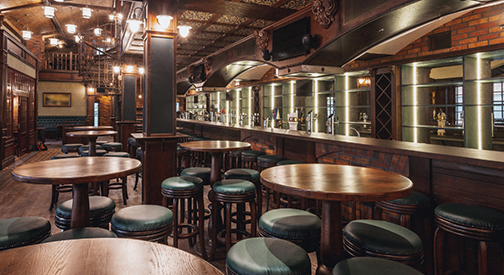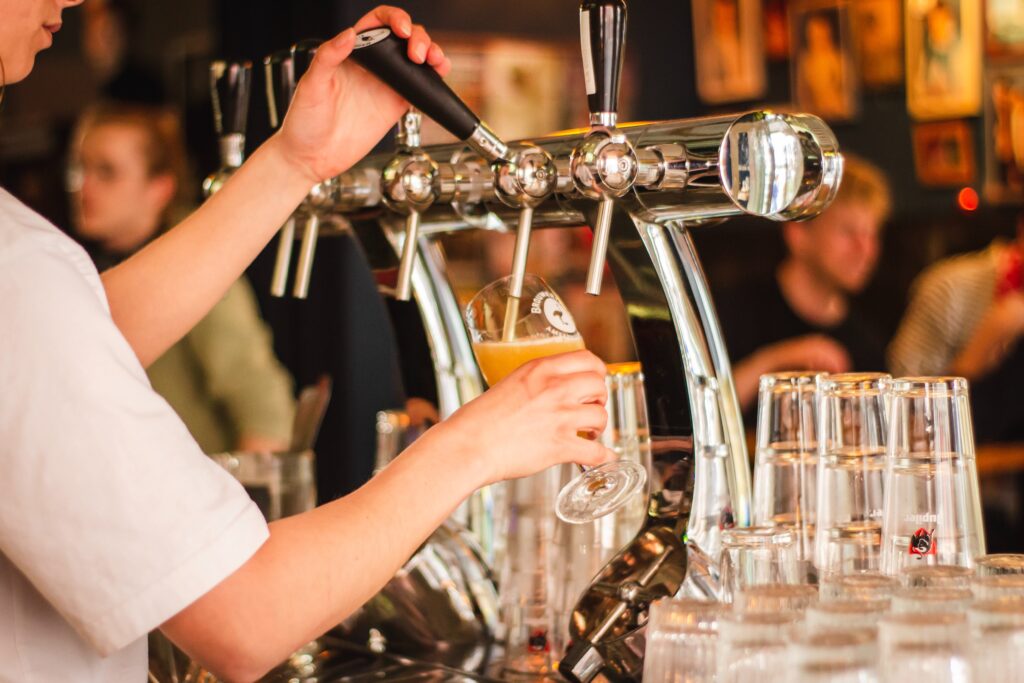How to Overcome the Top 6 Concerns of Hosting Brewery Private Events

If you have been thinking about opening your doors to private events within your brewery or taproom but seem to be overthinking all the challenges hosting events could bring. We hear you! We know that you want to focus most of your energy on your craft, literally crafting your beer, because, at the end of the day, that’s what a brewery is all about; really good beer. However, on average, breweries can see revenue growth of 30% by hosting private events – that is big money to overlook.
Here are six common concerns a brewery or taproom may face when hosting private events and how to overcome them.

1. Concern: Private event space limitations
Breweries may have limited space for private events, particularly if they are located in a small or urban area. This can make it challenging to accommodate large groups of guests or provide adequate space for entertainment or activities.
Opportunity: Breweries often have limited space for hosting private events. To overcome this challenge, consider implementing a reservation system that allows customers to book their events well in advance. You can also dedicate specific tables within your taproom for those private events as long as you are upfront about the location of the reserved tables; This demonstrates to others that they, too, could host a party, which could drum up more business. You can also explore the possibility of utilizing outdoor areas or collaborating with nearby venues to accommodate larger groups. Another consideration is a full buyout during less busy times.
2. Concern: Limited staffing and resources
Hosting private events can require additional staffing and resources, which may strain the brewery’s existing staff and budget. Breweries may need to hire additional staff or contract with outside vendors to provide food, entertainment, or other services.
Opportunity: Ask current employees if anyone wants to help build and grow the events program — these employees can be tasked to help create the processes surrounding events and how to execute them best. When you first start to host events, you won’t need a full-time event coordinator; a current employee who is good at juggling multiple projects at a time will be able to handle assisting those smaller parties as you grow and figure out what events and sizes work best for your space.
3. Concern: Equipment and infrastructure
Hosting private events may require additional equipment and infrastructure, such as tables, chairs, audiovisual equipment, or tents. This can be expensive to purchase or rent and may require storage space when not in use.
Opportunity: Start small and invest as the private events program grows. A couple of picnic tables and umbrellas are enough to get you started. Work with local furniture vendors about discounted furniture, and oftentimes large distributors will provide branded umbrellas for free, pick a brand you don’t mind collaborating with.

4. Concern: Marketing and promotion
Promoting private events can be challenging, particularly if the brewery does not have an existing customer base or network. Breweries may need to invest in marketing and advertising to attract guests to the event.
Opportunity: Effectively promoting your private events is crucial for attracting attendees. To spread the word, leverage your existing customer base through email newsletters and social media platforms. Collaborating with venue listing websites such as EventUp, local publications, local businesses, and word-of-mouth promotion can also be powerful, so encourage attendees to share their experiences with others. The more events you host, the more new people you get walking through your front door to potentially become customers in the taproom and future events.
5. Concern: Pricing and packages
Assessing the demand and market potential can be difficult when selling a new product. How much are folks willing to pay for private or semi-private event space? What should pricing and package structures look like for each brewery?
Opportunity: Package and pricing structures will differ for each brewery since there are many variables to consider; they will also evolve as you grow your events business and figure out what works best. A good rule of thumb is to charge beer minimums for each event; one beer per person per hour is the most common beer minimum. If you only offer table reservations for smaller groups, setting beer and food minimums will be enough to generate extra revenue. Suppose you are hosting events in private spaces. In that case, you will also want to charge booking, admin, and/or cleanup fees, expanding the potential revenue earnings to outweigh the additional efforts it takes to plan and execute larger events.
6. Concern: No in-house kitchen
Event guests attendees often want some food to be provided while attending events. Smaller breweries and taprooms have little or no kitchen space to accommodate a full menu leaving guests hungry.
Opportunity: Partner with local food trucks that can take care of all food, parked in your parking lot. Attendees can order exactly what they want and pay for themselves. In-house you can offer simple snacks such as warmed-up pretzels and a popcorn machine. These have relatively low costs and require little prep and cleanup. Partner with local restaurants for take-out orders; you can still add a small upcharge for managing and cleaning the catering orders.
Overall, hosting private events within your brewery or taproom can be a valuable and profitable strategy to increase revenue by 30% and build your brand. It is important to carefully consider and address these concerns to ensure fun and successful events.
I’m ready to be hoppy
Need help managing events at your brewery, brewpub, or taproom? Tripleseat, the #1 guest and event management software for brewers, streamlines the booking process without increasing your workload—access all the event features you need from a single platform. Book a demo to learn more.
